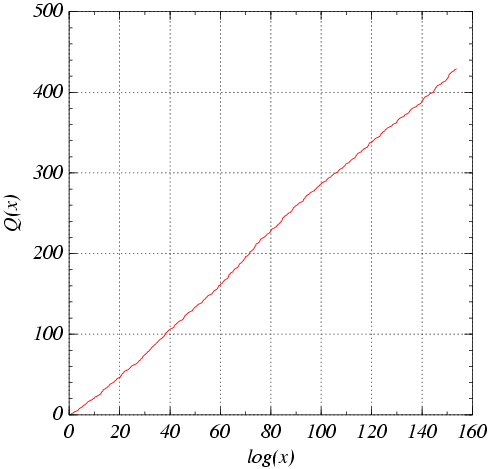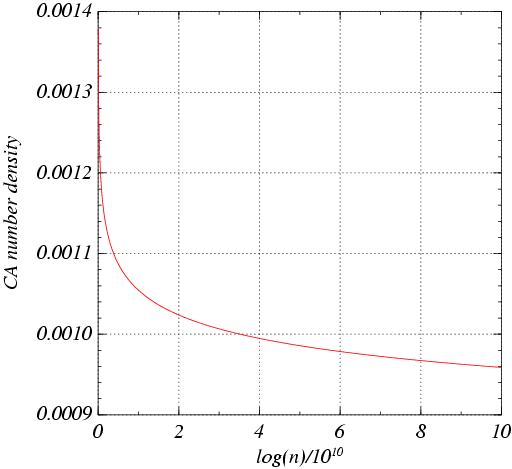|
|
 |
Superabundant and colossally abundant numbers
My purpose here is to show some new numerical data concerning these
numbers. For more details see my paper Abundant numbers and the Riemann hypothesis, Experimental Mathematics 15, 251-6 (2006).
Definitions:
- σ(n) is the sum of divisors of the positive integer n
- n is perfect if σ(n)=2n
- n is superabundant if
σ(m)/m < σ(n)/n
for all
m<n
- n is colossally abundant if there exists ε>0 such that
σ(n)/n1+ε ≥ σ(k)/k1+ε
for all
k>1
For properties of these numbers see the papers below.
data
Cumulative number of superabundant numbers:

Density of colossally abundant numbers:

references
- J. C. Lagarias: An elementary problem equivalent to the Riemann hypothesis, Amer. Math. Monthly, 109 (2002), 534-543
- L. Alaoglu & P. Erdős: On highly composite and similar numbers, Trans. Amer. Math. Soc. 56 (1944) 448-469
- G. Robin: Grandes valeurs de la fonction somme des diviseurs et hypothèse de Riemann, J. Math. pures appl. 63 (1984) 187-213
- S. Ramanujan: Highly composite numbers. Annotated and with a foreword by J.-L. Nicholas and G. Robin, Ramanujan J. 1 (1997) 119-153
- J.-L. Nicolas: Ordre maximal d'un éléement du groupe des permutations et highly composite numbers, Bull. Math. Soc Fr. 97 (1969), 129-191
- P. Erdös and J.-L. Nicolas Répartition des nombres superabondants, Bull. Math. Soc Fr. 103 (1975), 65-90
This website uses no cookies. This page was last modified 2024-01-21 10:57
by  . .
|
|

